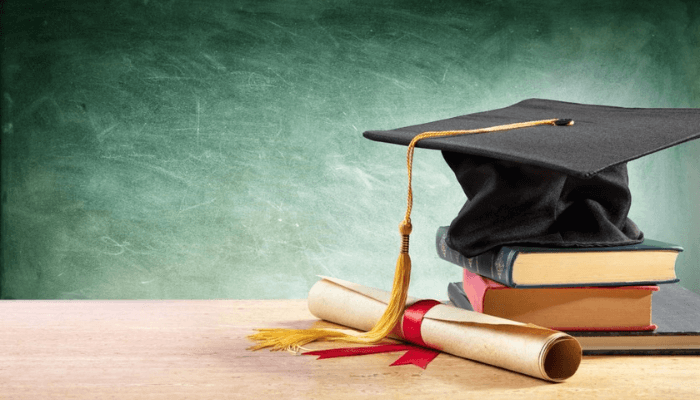From federal launch to state action: Making the non-state schools policy work for every Nigerian child
Each morning, millions of Nigerian children walk into classrooms that don’t officially exist. Yet, these schools, often run by faith-based, community, or other non-state operators, are where hope quietly lives.
For almost a decade at SEED Care & Support Foundation, we have worked with these affordable non-state schools that educate children from low-income families, often without recognition or support from government systems.
That’s why July 16, 2025, will forever be etched in my heart as a landmark moment for Nigeria’s education sector. On this day, the Federal Ministry of Education officially launched the National Policy on Non-State Schools in Nigeria (NPNSN) — a game-changer that finally creates a collaborative framework between government and non-state actors to deliver quality education for every Nigerian child.
But this historic launch is only the beginning. Nigeria’s Constitution places education on the concurrent list — meaning federal policy alone cannot transform classrooms. Each state must now domesticate the NPNSN, adapting and implementing it within its local context. Without that step, this policy will remain a promise on paper, not a pathway for change.
The policy gap
Nigeria’s education system operates under a shared federal–state mandate. According to the 1999 Constitution (Second Schedule, Part II, Sections 27–30), education sits on the concurrent legislative list. This means that while the Federal Ministry of Education provides policy guidance, each state government bears the responsibility of localising and implementing those policies within its unique context.
Federal education policies act as advisory frameworks. Their success depends on whether and how states translate them into actionable plans. Without domestication, even the best federal policies remain aspirational — well-written, well-launched, but not well-lived.
From our research, six states, Kano, Kaduna, Jigawa, Lagos, Ogun, and Oyo, have taken visible steps toward domestication. For the remaining thirty states and the FCT, no visible progress has been seen.
This slow uptake poses a real risk: the NPNSN could become another missed opportunity unless urgent action is taken.
Why domestication matters
Domestication is not a mere bureaucratic exercise; it is the bridge between policy intent and classroom impact. When states domesticate the NPNSN, they commit to building systems that recognise, include, support, and engage all non-state schools — the four pillars of SEED’s RISE framework.
Through domestication, states can:
- Recognise the scale and contribution of non-state schools (especially affordable ones) to basic education delivery.
- Include them in official data systems, teacher training, and education planning.
- Support them through school improvement initiatives and quality assurance systems.
- Engage them as partners in driving learning outcomes and innovation.
Domestication also ensures alignment with state realities — allowing flexibility in regulation, accountability, and resource allocation. Without it, millions of children in affordable non-state schools will remain excluded from the national education agenda — invisible in data and underserved in practice.
For these children, domestication means visibility — and hope.
The Lagos example
Lagos State illustrates the magnitude of the non-state sector — and why domestication matters. Non-state schools in Lagos outnumber state schools 22 to 1, with over 20,000 non-state schools (approved and yet-to-be-approved) educating about 70 percent of children, compared to roughly 1,700 public schools.
As a member of the committee driving the domestication of the NPNSN in Lagos, I have seen what genuine collaboration can achieve. Lagos, with its diversity of state and non-state schools, mirrors Nigeria’s broader education ecosystem.
The state’s ongoing process combines stakeholder consultations, data mapping, and reform design around registration, regulation, and support. Its leadership offers a foundation for peer learning, a model that can inspire other states through shared learning platforms.
Building state learning communities
By connecting governors, commissioners, permanent secretaries, and technical teams across states, we can foster a shared community of action that drives results. To accelerate state action, several platforms can help move reform ideas from paper to practice:
- Intentional tracking and reporting of state domestication progress by the Joint Consultative Committee on Education (JCCE) and National Council on Education (NCE) Secretariat, in collaboration with the Federal Ministry of Education.
- The Nigeria Governors’ Forum Peer-to-Peer Learning Exchange can host a State Learning Session — creating a national platform for states to share progress, challenges, and emerging practices around domestication.
- From the civil society angle, we at SEED Care & Support Foundation have developed the NPNSN Domestication Dashboard—an internal tool that will evolve into a public-facing platform by 2026. It will enable stakeholders—from government and development partners to school associations, parent groups, and teacher networks—to monitor progress, identify gaps, and celebrate milestones and learnings across states.
Transparency and accountability will be key to ensuring that this policy delivers on its promise.
From applause to action
The NPNSN aligns with Nigeria’s Education Sector Plan and reinforces our national commitment to Sustainable Development Goal 4—ensuring inclusive and equitable quality education for all.
But policies don’t educate children, people and states do.
The time for applause is over. Each state must now translate this policy into practice — by localising the framework, designating focal officers, and sharing progress through state learning exchanges.
Because if we fail to act, millions of children will continue learning in unregistered classrooms — unseen, unsupported, and uncounted.
Policies may start in Abuja, but real change begins in the states.
About the author:
Olanrewaju Oniyitan is the Founder/Executive Director of SEED Care & Support Foundation, a non-profit advancing access to quality education for underserved children by supporting affordable non-state schools through advocacy, evidence, and a learning network. She is also the CEO of W-Holistic Business Solutions, a development advisory firm, and a passionate advocate for grassroots education reform.

